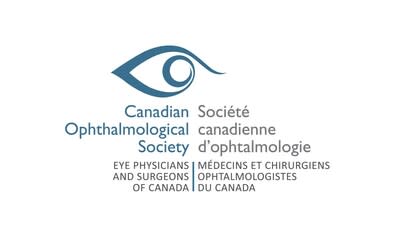Eye health survey uncovers Canadians' concerns about recent symptoms affecting their eyes & vision: Canadian Ophthalmological Society
TORONTO, May 1, 2024 /CNW/ - In time for Vision Health Month this May, the Canadian Ophthalmological Society, the national authority on eye and vision care in Canada, has released a new survey to assess Canadians' awareness, understanding, and concerns around eye and vision health.
Canadians' familiarity with eye diseases
Of the four leading eye diseases affecting vision, cataracts and glaucoma are still the most commonly known among Canadians. Two-thirds (65 per cent) of survey respondents are familiar with cataracts – a slight increase from 62 per cent in 2022, and more than half (53 per cent) are familiar with glaucoma – up from 47 per cent in 2022.
However, more education on other eye diseases is needed. Less than half (41 per cent) are familiar with age-related macular degeneration (AMD), despite being one of the leading causes of vision loss for people over the age of 55 which affects approximately 2.5 million Canadians. Fewer (25 per cent) are familiar with diabetic retinopathy, which can affect those living with diabetes.
"As Canadians become increasingly familiar with the four major eye diseases, there is a need for continued education to encourage proactive care," says Dr. Phil Hooper, president of the Canadian Ophthalmological Society. "While the survey reveals increased awareness, it also highlights significant concerns and alarming symptoms experienced by Canadians over the past two years, emphasizing the necessity for comprehensive eye health education and regular eye exams."
Eye health concerns and symptoms affecting Canadians' eyes and vision
When it comes to their eye health, the majority of Canadians (81 per cent) are concerned or have experienced at least one factor when it comes to their eyes and vision. Among the top three are too much screen time (53 per cent); exposure to sun/UV rays (53 per cent); and environmental factors, such as wildfire smoke and pollution (36 per cent). Canadians in BC (49 per cent) and Alberta (44 per cent) are directionally more concerned with environmental factors than those in the East.
Other concerns or symptoms experienced include medications that may produce symptoms impacting vision (i.e. vision loss, blurriness, etc.) (26 per cent), eye injury at work (i.e. flying debris, chemical burns, etc.) (24 per cent) and eye injury while playing sports (i.e. hockey, racquetball, squash etc.) (20 per cent).
In the past two years, seven-in-ten (71 per cent) Canadians have experienced one or more symptoms around their eyes or their vision, with screen time being the leading factor to their symptoms:
Dry, itchy and irritated eyes due to screen time (34 per cent)
Headaches / eye strain due to screen time (30 per cent)
Sensitivity to light (29 per cent)
Blurry vision (27 per cent)
Excessive tearing or watery eyes (26 per cent)
Seeing halos around lights (17 per cent)
Redness or swelling of the eyes (16 per cent)
Advancing eye health through innovations
Regarding innovations in eye health that Canadians would like to see more of, better access to eye care (51 per cent) and more effective treatments for eye diseases (48 per cent) top the list, while nearly four-in-ten (37 per cent) would like to see less invasive treatments for eye diseases. Few Canadians want the use of Artificial Intelligence (AI) as a more efficient way to detect vision/eye problems and eye diseases (19 per cent) and virtual eye exams (18 per cent).
To learn more about the four major eye diseases and get information on overall eye health, visit seethepossibilities.ca.
About the Survey
An online survey of 1605 Canadians aged 18+ was completed between March 22 and March 24, 2024, using Leger's online panel. No margin of error can be associated with a non-probability sample (i.e., a web panel in this case). For comparative purposes, though, a probability sample of 1605 respondents would have a margin of error of ±2.4%, 19 times out of 20. Leger's online panel has approximately 400,000 members nationally and has a retention rate of 90%.
About Canadian Ophthalmological Society
The Canadian Ophthalmological Society (COS) is the national, recognized authority on eye and vision care in Canada. As eye physicians and surgeons, we are committed to assuring the provision of optimal medical and surgical eye care for all Canadians by promoting excellence in ophthalmology and by providing services to support our members in practice. Our membership includes over 900 ophthalmologists and 200 ophthalmology residents. We work collaboratively with government, other national and international specialty societies, our academic communities (ACUPO), our provincial partners and affiliates and other eye care professionals and patient groups to advocate for health policy in Canada in the area of eye and vision health. The COS is an accredited, award-winning provider of Continuing Professional Development (CPD) through the Royal College of Physicians and Surgeons of Canada (RCPSC) and is an affiliate of the Canadian Medical Association (CMA). For more information, visit cos-sco.ca.
SOURCE Canadian Ophthalmological Society

View original content to download multimedia: http://www.newswire.ca/en/releases/archive/May2024/01/c2169.html

 Yahoo Finance
Yahoo Finance 
